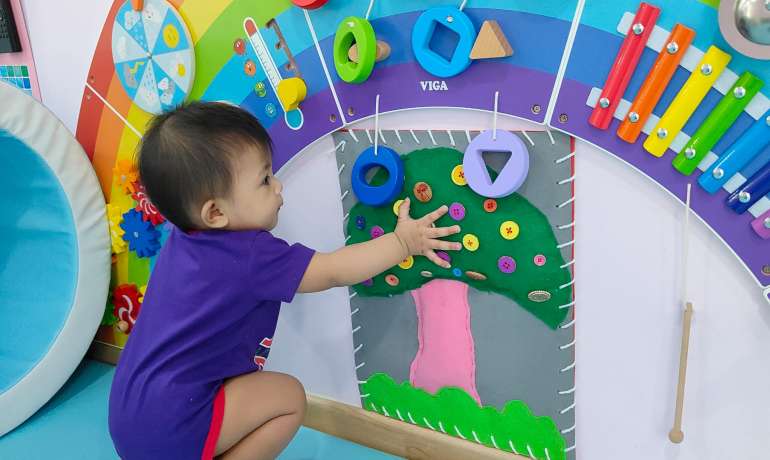Relocating to Singapore with children brings joy—and questions. One topic often left unanswered is this: are foreign parents entitled to childcare leave in Singapore? The short answer? Yes, they are.
But the rules are a little different for non-citizens. This guide will walk you through the facts about childcare leave for foreigners in Singapore that most parents don’t know. From eligibility to real-life scenarios, you’ll get the clarity you need to claim what you deserve.
1. Foreigners Are Legally Entitled to Childcare Leave
Let’s start by busting a myth. Childcare leave for foreigners in Singapore is not a privilege—it’s a right under the Employment Act.
If you’re a PR or a foreign employee with a valid work pass and you’ve worked for at least 3 continuous months, you are eligible for:
- 2 days of paid childcare leave per year, if your child is not a Singapore citizen.
- 6 days of leave per year, if your child is a Singapore citizen, under the Child Development Co-Savings Act.
You don’t have to be a Singaporean yourself to benefit. The system is designed to support working parents, regardless of nationality—so long as conditions are met.
2. Real Scenarios You May Relate To
Still unsure if you qualify? Here are common situations involving childcare leave for foreigners in Singapore:
- Two foreign parents, non-citizen child: Both get 2 days/year.
- One PR parent, Singapore citizen child: Potential eligibility for 6 days/year.
- Foreign parents at different companies: Each parent can claim leave independently.
- Foreign parent, PR child: Eligible for 2 days/year.
Each of these scenarios shows how entitlement depends on both parental employment status and the child’s citizenship.

3. Reimbursement Rules Explained
If your child is a Singapore citizen, and you’re eligible for the full 6-day entitlement, here’s how the payment works:
- First 3 days: Paid by your employer.
- Next 3 days: Reimbursed by the government (up to S$500/day).
If your child is not a citizen, your employer covers both days, and there’s no reimbursement.
You, as the employee, do not need to handle reimbursement claims directly. Employers apply via the GPL Portal. Understanding this helps ensure proper leave administration and reduces HR misunderstandings about childcare leave for foreigners in Singapore.
4. Your Employment Type Affects Eligibility
Are you working full-time, part-time, or on contract? Your employment type matters.
| Employment Type | Entitled to Childcare Leave? |
|---|---|
| Full-time | Yes, if 3 months of continuous service |
| Part-time | Yes, pro-rated based on work hours |
| Fixed-term Contract | Yes, if 3 months completed |
| Freelancers | No |
| Agency-hired | Depends on legal employer |
Only formal employees are covered under childcare leave for foreigners in Singapore. If you’re unsure about your contract’s status, clarify with HR early.

5. What If Your Employer Refuses Your Leave?
Unfortunately, not all companies are fully informed. If you’ve been wrongly denied childcare leave for foreigners in Singapore, take the following steps:
Step 1: Provide official information
Send them this page from the Ministry of Manpower:
https://www.mom.gov.sg/employment-practices/leave/childcare-leave/eligibility-and-entitlement
Step 2: Submit in writing
Clearly list:
- Your employment duration
- Child’s birth certificate
- Your leave dates
Step 3: Escalate if necessary
Contact TAFEP (Tripartite Alliance for Fair & Progressive Employment Practices) or MOM if the issue remains unresolved.
You are protected. Childcare leave for foreigners in Singapore is part of employment law—not just a benefit your company may choose to offer.
6. Know the Differences: Childcare Leave vs Others
Let’s differentiate childcare leave from other family-related leave types:
| Leave Type | Who It’s For | Foreigners Eligible? |
|---|---|---|
| Childcare Leave | Children under 7 | Yes |
| Extended Childcare Leave | Children 7–12 (SC only) | No |
| Maternity Leave | Mothers of Singapore citizen babies | Limited |
| Paternity Leave | Fathers of citizen babies | Limited |
If your child is not a citizen, only childcare leave for foreigners in Singapore applies. Maternity or paternity leave is often reserved for Singaporean children.
7. Prepare These Documents Before Applying
To avoid delays, have these ready:
- Employment letter showing at least 3 months of work
- Child’s birth certificate to confirm age and citizenship
- Company leave form or HR system submission
- If applicable, check that your employer submits GPL Portal claims
Clear documentation supports smoother processing of childcare leave for foreigners in Singapore, especially in companies unfamiliar with it.
8. What Most Articles Don’t Tell You
Here’s what’s missing from most childcare leave content:
- No data on uptake by foreigners—how many are using it?
- No mention of confusion in small companies without dedicated HR teams
- Lack of clarity for parents of PR children
- No templates or resources for HR departments to follow
- Zero real-life examples or stories to guide parents like you
At Little Unicorn Preschool, we see how this affects families—and that’s why we believe in spreading awareness about childcare leave for foreigners in Singapore.
Frequently Asked Questions (FAQ)
Q1: Can both parents take childcare leave?
Yes. Each parent can claim from their own employer, as long as they’re eligible.
Q2: Can I take childcare leave after switching jobs?
Yes, but only after working 3 continuous months with your new employer.
Q3: What happens to unused childcare leave?
Unused childcare leave expires at the end of the calendar year. It cannot be carried forward.
Q4: What if I’m a part-time worker?
You’re still eligible, but leave is pro-rated.
Q5: My employer doesn’t know about this. What should I do?
Show them the MOM page and clarify your eligibility. If they still refuse, contact TAFEP or MOM.
Plan Ahead for Your Child’s Future
Understanding your leave entitlements is only the first step. Give your child the best start at a preschool that supports both local and international families.
Visit littleunicornpreschool.com or contact us here to schedule a visit.

For deeper insights into parenting and education, explore:



